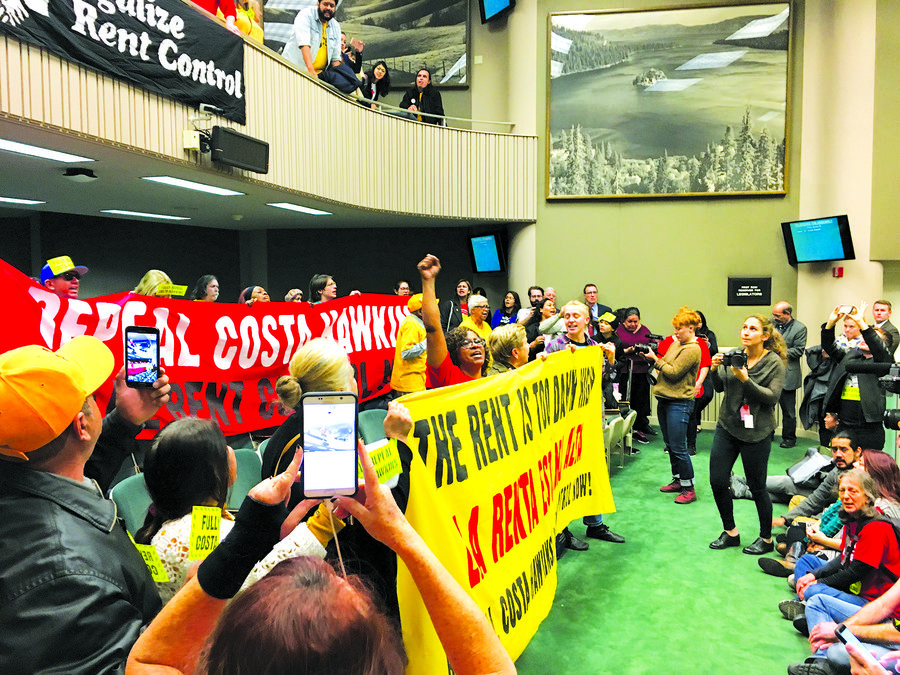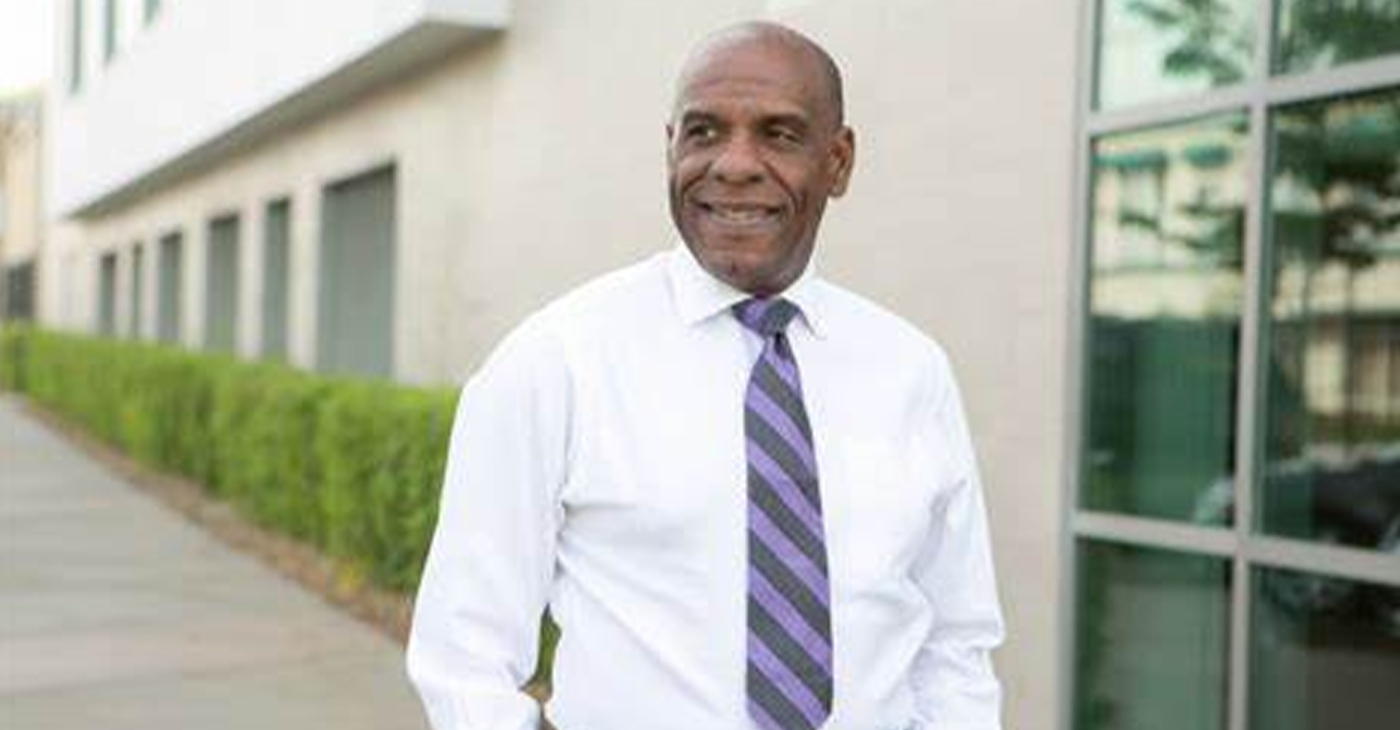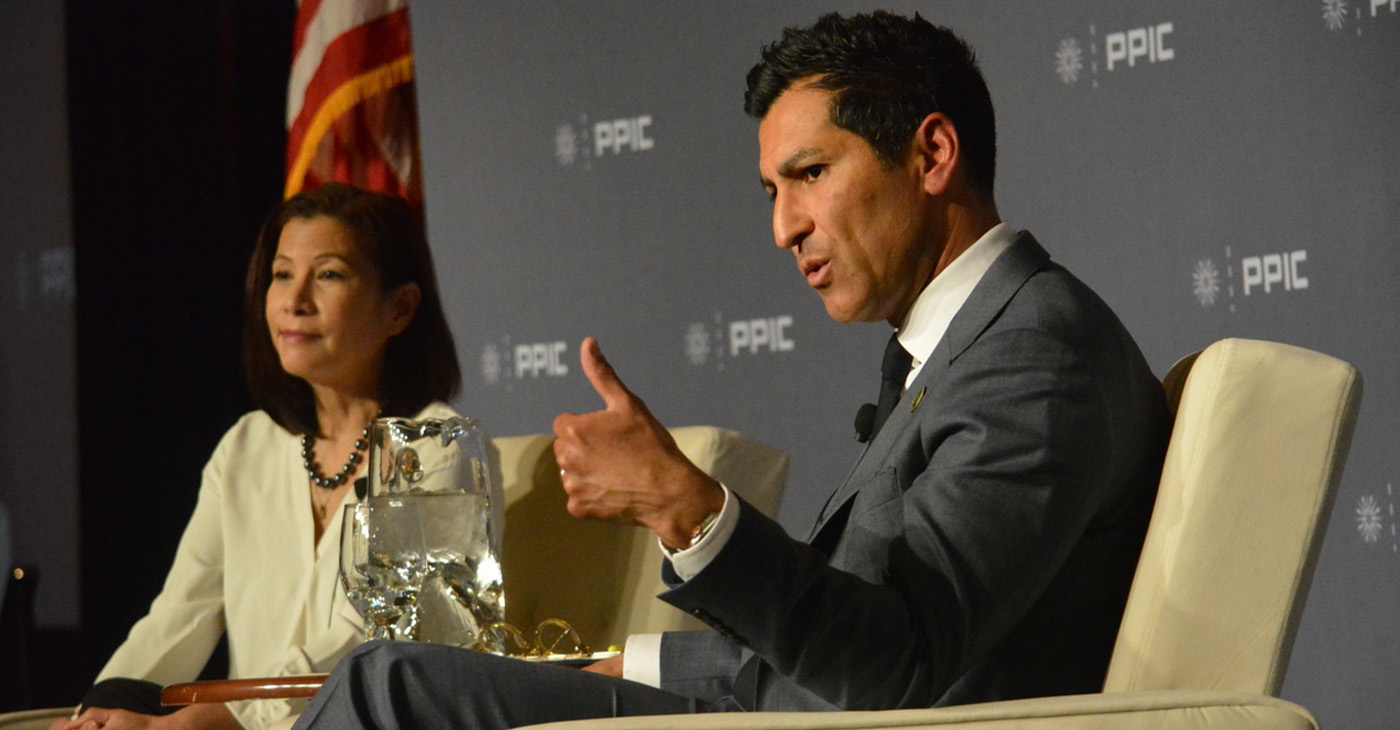Housing
Politicians Kill Bill to Eliminate State Rent Control Restrictions

Tenants’ rights advocates flood state capitol building, vow to take issue to ballot box
A bill to repeal statewide restrictions on rent control is dead in the water.
The Costa-Hawkins Rental Housing Act was passed in 1995, prohibiting cities from establishing rent control for single family homes or any newly constructed buildings (anything built after 1995).
After being stalled for over a year, the bill to repeal those restrictions (AB1506) was given its first public hearing on Friday, January 11. The bill was one shy of the four votes needed to move forward.
About a thousand people from the public showed to voice their opinions on the bill, packing the hearing room and wrapping around the hallway in line to speak either for or against the repeal.
Many of those speaking were landlords opposing the bill, claiming it will bring new development to a halt.
Aimee Inglis, associate director of statewide tenants’ rights nonprofit Tenants Together, characterized this talking point as “a flat out lie.” She said that areas with rent control actually have the most development.
“We are extremely outraged that our elected officials continue to prioritize landlord and developer profits over standing up for vulnerable families and seniors in dire need of help from this housing crisis. We plan to do everything in our power to fully repeal Costa Hawkins – whether that’s moving it through the legislature or this year at the ballot,” says Deepa Varma with the San Francisco Tenants Union.
Another landlord talking point was that AB1506 did nothing to build new housing.
This argument, however, hardly relates to the bill at hand. AB1506’s sole purpose is to lift statewide restrictions against rent control, allowing cities to establish their own rental protection policies.
Renters and tenants’ rights organizations from across the state had rallied in Sacramento to express their support for the repeal bill.
Assemblymembers Ed Chau (D-Monterey Park) and Jim Wood (D-Healdsburg) declined to vote last Thursday, which Inglis said was “highly disappointing.”
“After the vote, we felt we hadn’t been listened to and we felt we hadn’t been represented,” she said.
Those in favor of AB1506 stayed in the hearing room, chanting, before marching near Speaker Anthony Rendon’s office. Inglis said those fighting for tenant’s rights are dissatisfied with Rendon’s efforts to push this bill through.
Assemblymember Rob Bonta, who represents Oakland, Alameda, and San Leandro, voted for the repeal of Costa Hawkins last Thursday, along with Santa Cruz Assemblymember Mark Stone and San Francisco Assemblymember David Chiu.
After the hearing, Bonta tweeted: “I’m disappointed we came up one vote short on AB 1506 to repeal Costa Hawkins but I’m grateful for the strong show of support at today’s hearing. Every great movement has a beginning, middle and end. We are in the middle!”
The growing movement to strengthen rent control measures in California comes as Wall Street landlords are fundamentally changing homeownership across the county with massive purchases of single-family dwellings, squeezing tenants and prospective homeowners, particularly in communities of color, according to a new report authored by Alliance of Californians for Community Empowerment (ACCE), Americans for Financial Reform (AFR) and Public Advocates.
“Wall Street is transforming the single-family home into a commodity that it can trade in pursuit of greater wealth for a small group of wealthy investors. Allowing hedge funds and private equity firms to speculate on housing with no public oversight or regulation puts families at greater risk of unfair rent increases and evictions, and threatens the right to housing itself. The federal government and state lawmakers need to step in before these abuses become systemic.” said Maya Abood, MSC, co-author of the report.
The report is available atwww.acceinstitute.org/reports
Community
Financial Assistance Bill for Descendants of Enslaved Persons to Help Them Purchase, Own, or Maintain a Home
California Legislative Black Caucus (CLBC) vice chair Sen. Steven Bradford (D-Inglewood) introduced new legislation related to reparations to the Senate Committee on Housing on April 2 in Sacramento. Senate Bill (SB) 1007, “establishes the Homeowner’s Assistance for Descendants of Enslaved Persons Program to make financial aid or assistance available to descendants for the purposes of purchasing, owning, or maintaining a home,” the legislation states.

California Legislative Black Caucus (CLBC) vice chair Sen. Steven Bradford (D-Inglewood) introduced new legislation related to reparations to the Senate Committee on Housing on April 2 in Sacramento.
Senate Bill (SB) 1007, “establishes the Homeowner’s Assistance for Descendants of Enslaved Persons Program to make financial aid or assistance available to descendants for the purposes of purchasing, owning, or maintaining a home,” the legislation states.
The Senate Housing Committee advanced the bill with an 8-1 vote. It will be re-referred to the Appropriations Committee for consideration.
Sen. Kelly Seyarto (R-Murrieta) was the only member who voted against the bill.
“SB 1007 is about starting a long process of paying back a debt that is not only owed, but that was also promised, and is 160 years overdue, to African Americans,” Bradford told the committee chaired by Sen. Nancy Skinner (D-Berkeley). “It is the first step in closing the wealth and equity gap created by centuries of slavery and racial discrimination policies.”
The bill aligns with one of the 115 recommendations listed in a two-year study conducted by the California reparations task force, of which Bradford was one of nine members.
Bradford said the report reveals that, in the state of California, a typical Black-owned home is 22% less valuable than a White-owned home.
Various advocacy groups from around the state attended the hearing held at the State Capitol Annex Swing Space. The California Housing Partnership, Bay Area Regional Health and Inequities Initiative, Coalition for A Just and Equitable California, Disability Rights of California, the American Civil Liberties Union of California, and California Community Builders all voiced their support of the bill.
Community
The Year Ahead: Assembly Speaker Rivas Discusses Priorities, Problems
Assembly Speaker Robert Rivas shared his legislative priorities and vision for the future of California during a luncheon hosted by the Public Policy Institute of California (PPIC) in downtown Sacramento.

By Antonio Ray Harvey, California Black Media
Assembly Speaker Robert Rivas shared his legislative priorities and vision for the future of California during a luncheon hosted by the Public Policy Institute of California (PPIC) in downtown Sacramento.
Titled a “Conversation with Assembly Speaker Robert Rivas” for PPIC’s 2024 Speaker Series on California’s Future, the 44-year-old Democrat lawmaker from Hollister, who represents the 29th Assembly District, is the 71st speaker of the Assembly.
The discussion at the Sheraton Hotel took place about two weeks after Gov. Gavin Newsom presented his $291 Billion January budget proposal.
“These are going to be difficult times,” Rivas said of the task of balancing a budget that has been estimated separately by the Department of Finance and Legislative Analyst’s Office to have a deficit between $38 billion and $68 billion. “It’s going to underpin everything we get done this year. It’s going to impact everything.”
PPIC’s Speaker Series on California’s Future allows “leaders, lawmakers, and changemakers with diverse perspectives to participate critically, constructively, and collaboratively in public conversations,” according to PPIC.
PPIC president and Chief Executive Officer Tani Cantil-Sakauye was the moderator of the 60-minute discussion that about 200 guests attended.
Rivas said right after he was sworn in as the Assembly leader that among his top priorities are mental and medical wellness, public safety, affordable housing, homelessness, education, the state’s entry-level scientists’ wages, and climate change.
He added that his goal is to focus on both urban and rural areas across the state, including improving public services and infrastructure. He explained that wildfires, flooding, droughts, and agriculture productivity are additional concerns.
Rivas shared that legislators should have goals of “addressing critical issues” that lead to “progress, affordability, and improving day-to-day” quality of life for all residents in California.
“These issues are consistent across the state. I prioritize no region over the other,” Rivas told Cantil-Sakauye, the former chief justice of the California Supreme Court.
During the question-and-answer portion of the conversation, Michael L. Younger, the Vice President of Workforce, Strategy, and Innovation at Calbright College asked Rivas about how the state can help individuals with workforce training and achieve labor success without relying on traditional colleges and university.
“(I am) speaking to those who may not see themselves on the college track but also have value to society,” Younger asked Rivas.
In his response, Rivas said the labor force needs individuals with work training skills, especially with the rise and usage of artificial intelligence.
“The need to have that transition can’t come soon enough but at the same time we have a responsibility to train displaced workers,” Rivas said.
Carmen-Nicole Cox, director of Government Affairs for American Civil Liberties Union – California Action, asked the Speaker would he accept the “community’s invitation” to take a public health approach to addressing public safety rather than one that criminalizes, demoralizes and focuses on incarceration.
Rivas responded to Cox’s question by explaining that an impartial evaluation of public safety should be made initially before providing a resolution.
“Our approach to addressing public safety is to, first, listen, to be fair throughout our process and to find solutions. Does that include addressing public health? Absolutely,” he said.
California Black Media
Report: Black Homeownership in Calif. for 25-35-Year-Olds Has Fallen by More than 50%
A report released last week by the California Community Builders Association (CBCA) presented a grim picture of home ownership for middle income Black Californians and other minorities. The report, titled “California’s Missing Middle,” revealed that the rate of homeownership for Black Californians ages 25 through 35 dropped by more than half — from 50% to 23% over a four-decade period, beginning in 1980 through 2021.

By California Black Media
A report released last week by the California Community Builders Association (CBCA) presented a grim picture of home ownership for middle income Black Californians and other minorities.
The report, titled “California’s Missing Middle,” revealed that the rate of homeownership for Black Californians ages 25 through 35 dropped by more than half — from 50% to 23% over a four-decade period, beginning in 1980 through 2021.
During that same period, the rate of homeownership for Latinos also fell significantly — by 22 percentage points, from 52% to 30%.
According to CBCA, the study is based on Census data. It focuses on middle-income Californians because there are rapid shifts happening among that demographic and that sub-group gets the least attention in conversations about homelessness and housing affordability.
“Middle-income California is shrinking, and the drop is all in the lower-middle-income group, from 6.7 million in 2000 to 4.3 million in 2019, a staggering 35% drop,” reads a CBCA press release.
Middle-income Californians also receive the least amount of government funded subsidies aimed at making housing more affordable in the state.
“We have no idea whether these people left the state or changed income brackets. In fact, we know little about the demographics and housing challenges of this group, but the ‘shrinking middle class’ looks real. Knowledge gaps create policy gaps, and we have both,” the CBCA press release continued.
Among key findings in the study are nearly 60% of middle-income Californians are people of color and California housing prices have increased eight times as much as California incomes.
The report recommends that the state create a housing policy that considers the needs of middle-income Californians. The majority of them, according to CCBA, earn too little money to compete in the housing market, yet their income is too high to qualify for income-based subsidies.
“Today, the needs of low-income families are often the primary source of discussion when it comes to housing policy and housing subsidy,” the report reads. “CCB agrees with this perspective and believes low-income families need far greater support than they receive today, but we also believe that the 17 million middle-income Californians also need care and attention, as our current housing market regularly fails them.”
-

 Activism4 weeks ago
Activism4 weeks agoOakland Post: Week of March 20 – 26, 2024
-

 #NNPA BlackPress3 weeks ago
#NNPA BlackPress3 weeks agoCOMMENTARY: D.C. Crime Bill Fails to Address Root Causes of Violence and Incarceration
-

 #NNPA BlackPress3 weeks ago
#NNPA BlackPress3 weeks agoMayor, City Council President React to May 31 Closing of Birmingham-Southern College
-

 #NNPA BlackPress3 weeks ago
#NNPA BlackPress3 weeks agoCOMMENTARY: Lady Day and The Lights!
-

 #NNPA BlackPress3 weeks ago
#NNPA BlackPress3 weeks agoFrom Raids to Revelations: The Dark Turn in Sean ‘Diddy’ Combs’ Saga
-

 #NNPA BlackPress3 weeks ago
#NNPA BlackPress3 weeks agoBaltimore Key Bridge Catastrophe: A City’s Heartbreak and a Nation’s Alarm
-

 #NNPA BlackPress3 weeks ago
#NNPA BlackPress3 weeks agoBaltimore’s Key Bridge Struck by Ship, Collapses into Water
-

 Activism3 weeks ago
Activism3 weeks agoOakland Post: Week of March 27 – April 2, 2024
















































